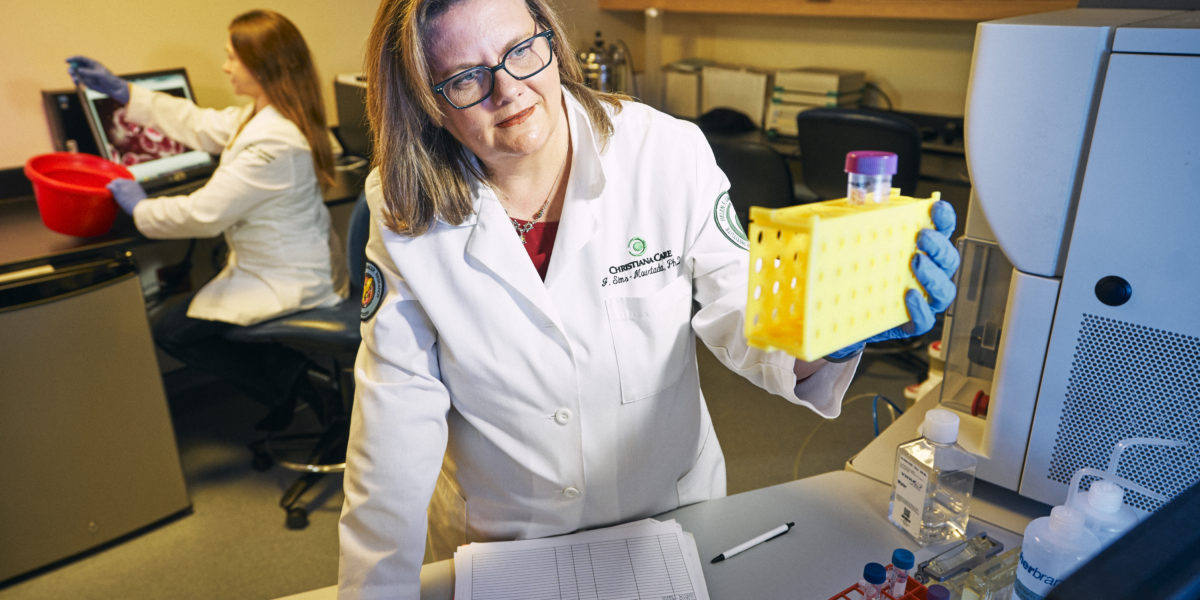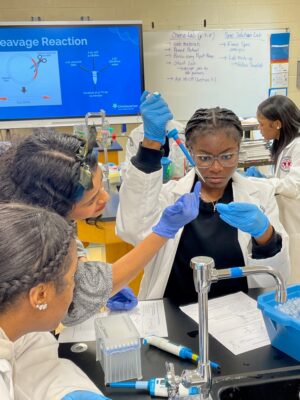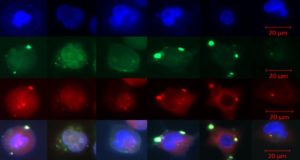Lead Scientist Jennifer Sims Mourtada, PhD, director of the Breast Translational Cancer Research Program at the Cawley Center for Translational Cancer Research (CTCR), has received $1,160,681 from the Lisa Dean Moseley Foundation to establish a first-of-its-kind translational cancer research fellowship at ChristianaCare’s Helen F. Graham Cancer Center & Research Institute.
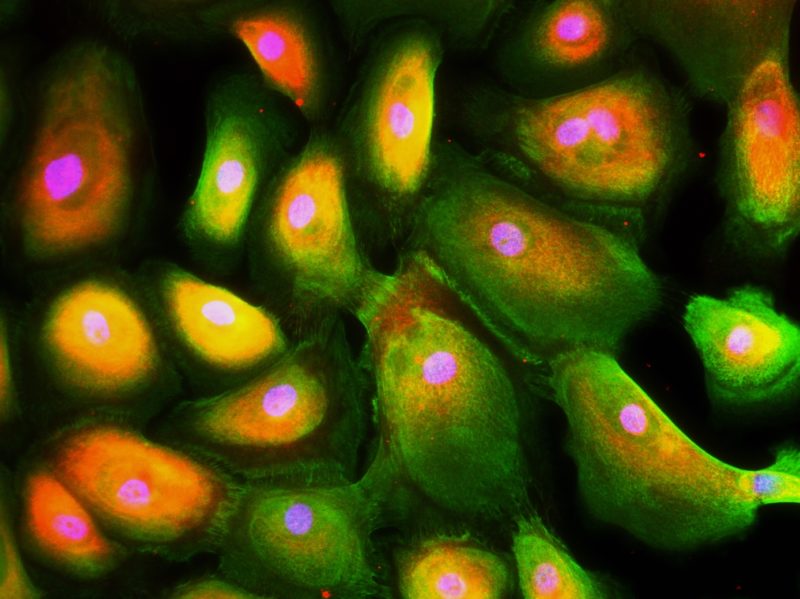
The five-year grant expands current research partnerships with the Moseley Foundation by providing fellowships to support one to two fellows per year.
The fellowship will broaden Cawley CTCR training opportunities for early career PhDs and physician scientists in academic medicine or translational cancer research with a major focus on cancer stem cells.
“The Moseley Foundation’s fellowship grant will spur the momentum of our cancer stem cell research program with support for an essential element —the post-doctoral training of our translational research fellows,” said Nicholas J. Petrelli, M.D., Bank of America endowed medical director of the Helen F. Graham Cancer Center & Research Institute.
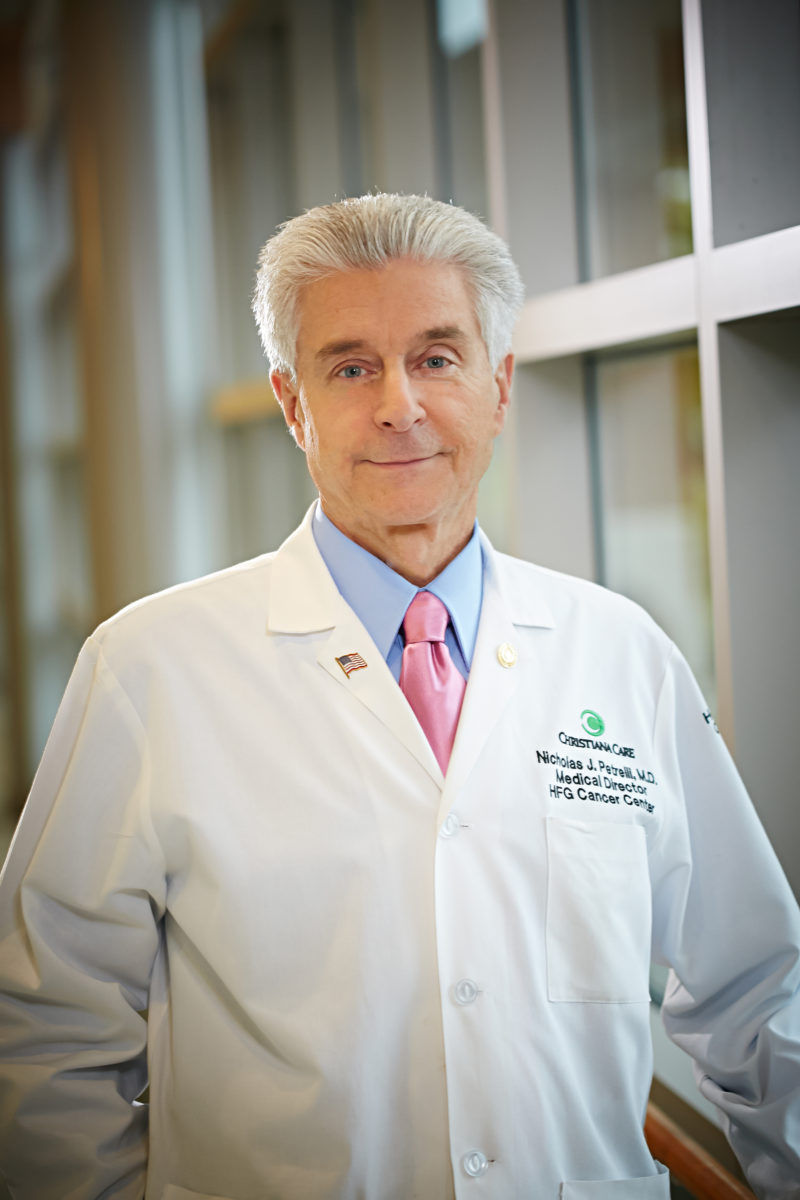
“As Delaware’s leader in cancer treatment, genetics and clinical trials, this support will strengthen our efforts to integrate basic cancer research into clinical practice that ultimately translates into advanced treatment for our patients.”
The Cawley CTCR offers post-doctoral fellows a unique opportunity to collaborate with experienced clinicians and scientists in an academic setting at one of the few translational research facilities integrated into a community cancer center.
“Our goal is to provide trainees with extensive knowledge, skills and experience to develop productive careers as translational cancer researchers and allow training of the next generation of translational scientists to continue to be a priority in the Cawley CTCR,” said Sims Mourtada.
“It is our expectation that this program will serve as another conduit to attract talented clinicians and scientists to Delaware.”
Study: Inflammation caused by radiation can drive triple-negative breast cancer
Each year, a Cawley CTCR advisory committee, chaired by Sims Mourtada and consisting of scientists and clinicians at the Graham Cancer Center and partnering institutions, will select one or two research fellows in Translational Cancer Stem Cell Research.
Research fellows will receive extensive training in translational cancer research that will allow them to excel as independent researchers. Although they will receive intensive training in a single area of research, they will also receive broad-based exposure to clinical research and all aspects of cancer care. Each fellow will focus full-time on laboratory research.
“Successful translation of biomedical discoveries into cancer treatments depends on a highly skilled research workforce,” said Sims Mourtada.
The fellowship will broaden Cawley CTCR training opportunities for early career PhDs and physician scientists in academic medicine or translational cancer research with a major focus on cancer stem cells.
“It is our intent to train fellows to identify important questions and approaches that will move the field forward and lead to more timely and impactful translation of research findings into clinical cures.”
Outcomes expected from each fellow accepted into this program will include presentations at research conferences or symposia and at national meetings, peer-reviewed first author publications, and development of an independent research project.
The Lisa Dean Moseley Fellowship in Cancer Stem Cell Research is made possible through funding generously provided by the Lisa Dean Moseley Foundation based in Wilmington, Delaware.
Click here for more on cancer innovation at ChristianaCare.
